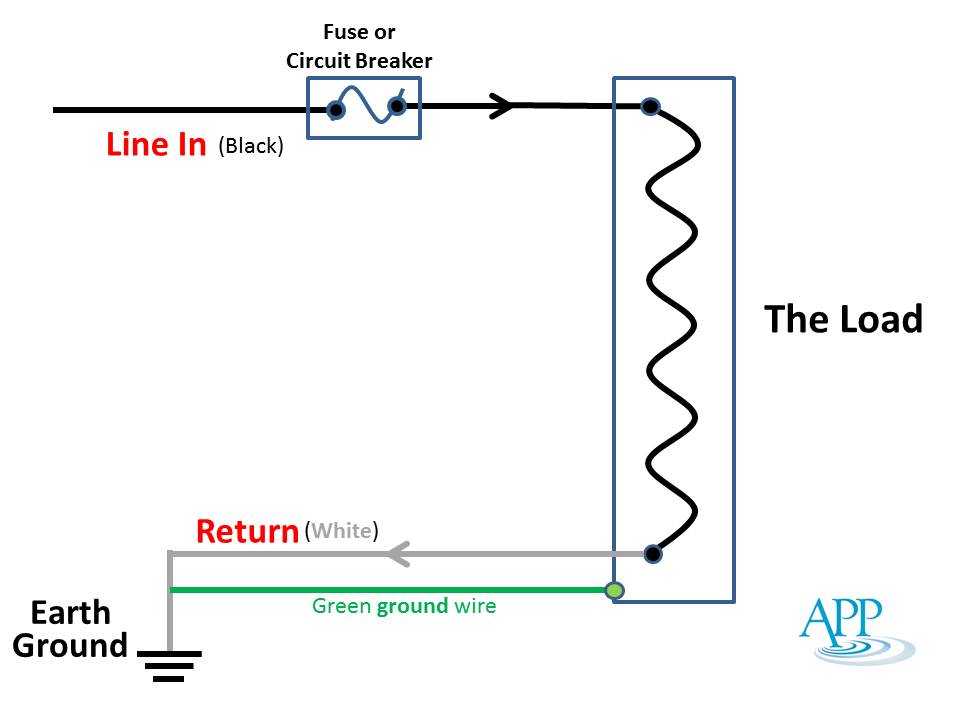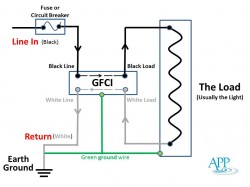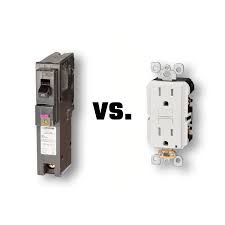
Schematic of a Circuit without a GFCI
When we are in Chapter 14 (Facility Safety) of the Pool & Spa Operator Handbook, discussing electrical safety during our CPO® class, we talk about the difference between a Ground Fault Circuit Interrupter (GFCI) and a Circuit Breaker. We also define the difference between grounding and bonding, which you can read about here.
The Circuit Breaker will interrupt (turn the circuit off) when there is a current overload. This can be caused when there is a “short circuit” to ground or by the load itself drawing more current than the rating on the circuit breaker. For example, if the circuit breaker is rated for 15 amps, it will “pop” (or break the circuit) as soon as the circuit Load draws more than 15 amps.

A Circuit showing a GFCI installed
The Ground Fault Circuit Interrupter will turn the circuit off (interrupt) when there is a current leak. The GFCI monitors the current going to the “Load” (black, “hot” wire) and compares it to the current coming from the Load (white, “common” wire). If there is any difference between the two, the GFCI will “interrupt” or turn the circuit off.
The GFCI is very sensitive. It will trip when there is only a 4 to 6 milliamp difference ( UL 943, Article 100 of the NEC ) between the current going out and the current coming back — that is only 4 to 6 thousandths of an amp (.004 to .006 amps)!
__________________________________________
Our sponsor for our CPO classes, PoolCorp, welcomed us once a again at their Superior Pool Products building in Anaheim this past Thursday and Friday, October 20-21. Thank you, Don White, Shelly, Elizabeth and crew. And a special thanks to Steve and John for carrying our supplies and equipment upstairs!

